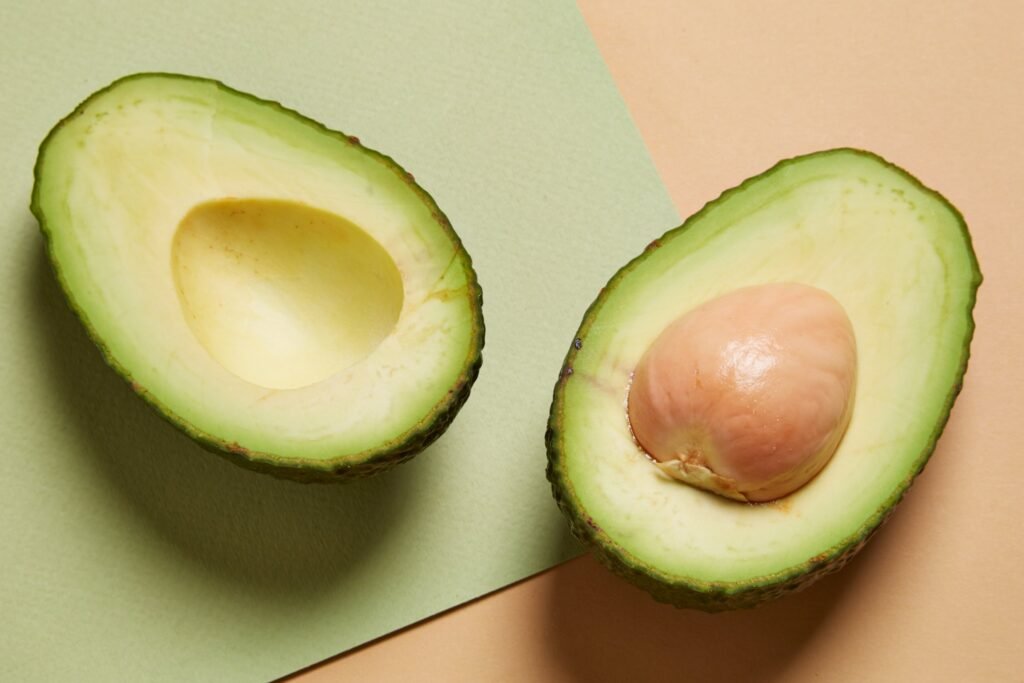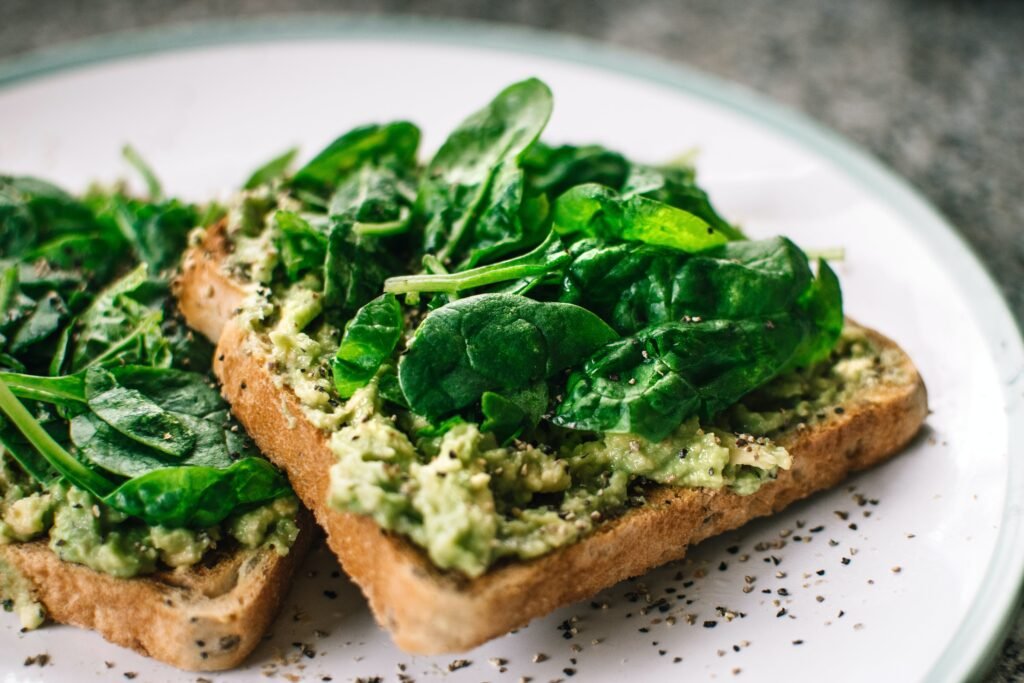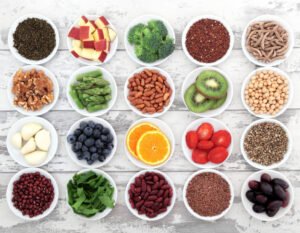
In a new study featured on the Netflix show, “You Are What You Eat: A Twin Experiment,” it is revealed just how powerful a plant-based diet can be for improving health. The study, conducted by Stanford University, showed that participants who followed a vegan diet experienced significant improvements in their cholesterol levels, weight loss, and overall cardiometabolic health in just eight weeks. Additionally, other recent studies have pointed to the numerous benefits of plant-rich diets, including weight management and lower risk of heart disease. While the debate between plant-based and meat-inclusive diets continues, one thing remains clear: incorporating more plant-based foods into your diet is always a good decision.

The Benefits of a Plant-Based Diet
Improved Cardiovascular Health
Switching to a plant-based diet can offer numerous benefits for your cardiovascular health. Plant-based foods are generally low in saturated fats and cholesterol, which are commonly found in animal products. By reducing your intake of these substances, you can help lower your risk of heart disease, high blood pressure, and other cardiovascular issues. Additionally, plant-based foods are rich in fiber, which can help improve cholesterol levels and regulate blood sugar levels.
Weight Management
Maintaining a healthy weight is crucial for overall well-being, and a plant-based diet can contribute to weight management. Plant-based foods are generally lower in calories and higher in fiber compared to animal-based products. This combination helps you feel full for longer periods while consuming fewer calories. Additionally, plant-based diets tend to include a higher proportion of nutrient-dense foods, which can aid in weight loss and provide essential vitamins and minerals.
Reduced Risk of Chronic Diseases
Studies have shown that following a plant-based diet can reduce the risk of chronic diseases. Plant-based diets have been associated with lower rates of heart disease, type 2 diabetes, certain types of cancer, and obesity. By incorporating a variety of fruits, vegetables, whole grains, and legumes into your diet, you can provide your body with the necessary nutrients to combat these health issues.
Higher Nutrient Intake
Plant-based diets are often rich in essential nutrients, including vitamins, minerals, and antioxidants. Fruits and vegetables are particularly abundant in vitamins A, C, and E, as well as potassium, magnesium, and folate. By consuming a diverse range of plant-based foods, you can ensure that your body receives a wide array of nutrients necessary for optimal health.
Promotes Gut Health
Including plant-based foods in your diet can promote gut health and improve digestion. Plant-based foods are generally rich in dietary fiber, which helps promote regular bowel movements and prevents constipation. Additionally, plant-based diets often include fermented foods, such as sauerkraut and kimchi, which contain beneficial probiotics that contribute to a healthy gut microbiome.
The Power of Fruits and Vegetables
Antioxidants and Phytochemicals
Fruits and vegetables are excellent sources of antioxidants and phytochemicals. Antioxidants help protect the body from oxidative stress and damage caused by free radicals, which can contribute to the development of chronic diseases. Phytochemicals, on the other hand, have been shown to have numerous health benefits, including anti-inflammatory and anticancer properties. By incorporating a variety of colorful fruits and vegetables into your meals, you can harness the power of these beneficial compounds.
Fiber and Digestive Health
Fiber is a crucial component of a healthy diet, and fruits and vegetables are excellent sources of this important nutrient. Fiber aids in digestion by promoting regular bowel movements and preventing constipation. It also helps maintain a healthy weight, lowers cholesterol levels, and regulates blood sugar levels. By consuming a variety of fruits and vegetables, you can ensure that you’re getting an adequate amount of fiber to support optimal digestive health.
Vitamins and Minerals
Fruits and vegetables are packed with essential vitamins and minerals necessary for overall health and well-being. They are excellent sources of vitamins A, C, and E, as well as potassium, magnesium, and folate. These nutrients play crucial roles in various bodily functions, including immune function, tissue repair, and cell growth. By incorporating a diverse range of fruits and vegetables into your diet, you can ensure that your body receives the necessary vitamins and minerals to thrive.
Hydration and Detoxification
Many fruits and vegetables have high water content, making them excellent choices for staying hydrated. Proper hydration is essential for optimal bodily functions, including digestion, nutrient absorption, and temperature regulation. Additionally, certain fruits and vegetables, such as cucumbers and leafy greens, have detoxifying properties that support the body’s natural detoxification processes. By including hydrating and detoxifying fruits and vegetables in your diet, you can support overall health and well-being.
Plant-Based Protein Sources
Legumes and Beans
Legumes, such as lentils, chickpeas, and black beans, are excellent sources of plant-based protein. They are also high in fiber and packed with essential nutrients, such as iron and folate. Incorporating legumes and beans into your meals can help meet your protein needs while providing numerous health benefits.
Nuts and Seeds
Nuts and seeds are another great source of plant-based protein. They are also rich in healthy fats, fiber, and a variety of vitamins and minerals. Including a variety of nuts and seeds, such as almonds, walnuts, chia seeds, and flaxseeds, in your diet can provide a satisfying source of protein and contribute to overall health.
Whole Grains
Whole grains, such as quinoa, brown rice, and oats, are not only excellent sources of complex carbohydrates but also contain significant amounts of protein. They are also packed with fiber, vitamins, minerals, and antioxidants. Incorporating whole grains into your diet can help boost your protein intake while providing numerous other health benefits.
Plant-Based Protein Powders
Plant-based protein powders, such as pea protein, hemp protein, and brown rice protein, are convenient options for increasing your protein intake. They are usually made from a combination of plant sources and provide all the essential amino acids necessary for muscle repair and growth. Plant-based protein powders are a great alternative for individuals following a plant-based diet or looking for vegan-friendly protein options.
Plant-Based Fats and Oils
Healthier Fats for Heart Health
Plant-based fats, such as those found in avocados, olives, and nuts, are healthier alternatives to saturated fats found in animal products. These healthier fats can contribute to heart health by reducing LDL cholesterol levels and promoting overall cardiovascular well-being. Including plant-based fats in moderation as part of a balanced diet can support heart health.
Omega-3 Fatty Acids
Omega-3 fatty acids are essential fats that have been linked to numerous health benefits, including improved brain function and reduced inflammation. While fatty fish is a common source of omega-3 fatty acids, plant-based alternatives like chia seeds, flaxseeds, and walnuts can also provide these important nutrients. These plant-based sources are especially important for individuals following a plant-based diet.
Monounsaturated Fats
Monounsaturated fats, found in foods like olive oil, avocados, and nuts, can have a positive impact on heart health. They can help reduce LDL cholesterol levels, regulate blood sugar levels, and improve insulin sensitivity. Including monounsaturated fats in moderation as part of a plant-based diet can contribute to overall health and well-being.

Environmental Impact of Plant-Based Diets
Reduced Carbon Footprint
Plant-based diets have a significantly lower carbon footprint compared to diets that include animal products. The production of meat and dairy products contributes to greenhouse gas emissions, deforestation, and water pollution. By adopting a plant-based diet, you can help reduce your environmental impact and contribute to a more sustainable future.
Conservation of Resources
The production of animal-based products requires significant amounts of resources, including land, water, and energy. In contrast, plant-based diets require fewer resources, making them more sustainable and environmentally friendly. By choosing plant-based options, you can help conserve precious resources and promote sustainability.
Sustainable Agriculture
Plant-based diets promote the use of sustainable agricultural practices. Growing plant-based foods requires less water and energy compared to animal agriculture. Additionally, plant-based diets can help reduce the use of pesticides and fertilizers, further promoting sustainable farming practices. By supporting sustainable agriculture through a plant-based diet, you contribute to the preservation of the environment and the health of ecosystems.
Debunking Meat-Based Diet Myths
The Nutritional Value of Animal Products
There is a common misconception that animal products are necessary for a complete and balanced diet. While animal products can provide certain nutrients, plant-based diets can also offer all the necessary nutrients when adequately planned. Plant-based diets can provide ample amounts of protein, vitamins, minerals, and other essential nutrients while offering numerous health benefits.
Balancing Meat Consumption
It’s important to note that incorporating small amounts of meat into your diet does not necessarily have negative health effects. It’s all about balance and moderation. If you choose to include animal products in your diet, opting for lean meats and limiting the portion sizes can help ensure a balanced and healthy diet. However, it’s essential to prioritize plant-based foods to reap the full health benefits.
The Mediterranean Diet
The Mediterranean diet, which includes moderate consumption of fish, poultry, and dairy products, along with an abundance of fruits, vegetables, whole grains, and legumes, has been extensively studied and shown to have numerous health benefits. This diet pattern incorporates plant-based foods as the foundation while still including small amounts of animal products. The Mediterranean diet can serve as a balanced approach that provides the benefits of a plant-based diet while allowing for occasional meat consumption.

Addressing Nutritional Concerns
Vitamin B12 and D Sources
One of the main concerns with plant-based diets is obtaining adequate amounts of vitamin B12 and vitamin D. While these nutrients are typically found in animal products, they can also be obtained through fortified plant-based foods or supplements. Including fortified plant-based milks, breakfast cereals, and nutritional yeast in your diet can help meet your vitamin B12 needs. For vitamin D, exposing your skin to direct sunlight or taking a vitamin D supplement can ensure adequate levels.
Iron and Calcium Intake
Iron and calcium are other nutrients that are commonly associated with animal products. However, it is entirely possible to obtain these nutrients from plant-based sources. Legumes, leafy greens, fortified plant-based milks, tofu, and seeds are excellent sources of iron. Meanwhile, calcium-rich foods like tofu, fortified plant-based milks, collard greens, and broccoli can help meet your calcium needs. Proper meal planning and ensuring a diverse intake of plant-based foods can help address any potential deficiencies.
Protein Adequacy in Plant-Based Diets
Protein is a vital nutrient for overall health, and plant-based diets can provide sufficient amounts of protein when properly planned. Combining different plant-based protein sources throughout the day, such as legumes, nuts, seeds, and whole grains, can ensure that you’re getting all the essential amino acids. It’s also important to consume an adequate amount of calories to meet your energy needs and support protein utilization. By focusing on a variety of plant-based protein sources, you can easily meet your protein requirements.
The Flexibility of a Plant-Based Diet
Transitioning Gradually
Adopting a plant-based diet doesn’t have to be an all-or-nothing approach. Transitioning gradually can help make the process more manageable and sustainable. Start by incorporating more plant-based meals into your weekly routine and gradually reducing your consumption of meat and animal products. This approach allows you to explore new recipes, discover plant-based alternatives, and adjust to the dietary changes at your own pace.
Flexitarian and Pescatarian Approaches
Flexitarian and pescatarian approaches embrace the flexibility of a plant-based diet while still allowing for occasional meat or seafood consumption. Flexitarians primarily focus on plant-based foods but occasionally include small amounts of animal products. Pescatarians, on the other hand, include seafood in their primarily plant-based diet. These approaches can offer a balance between the health benefits of a plant-based diet and personal dietary preferences.
Incorporating Plant-Based Meals
Incorporating plant-based meals into your diet can be an exciting and flavorful experience. Start by experimenting with different fruits, vegetables, whole grains, and legumes to create delicious and nutritious plant-based dishes. There are numerous resources available, including cookbooks, online recipes, and meal delivery services, that can help inspire and guide you in creating satisfying plant-based meals.

Health Considerations and Risks
Potential Nutrient Deficiencies
While plant-based diets can offer an array of health benefits, it’s important to be mindful of potential nutrient deficiencies. Vitamin B12, vitamin D, iron, calcium, and omega-3 fatty acids are nutrients that may require additional attention when following a plant-based diet. By carefully planning your meals and considering fortified foods or supplements, you can help prevent nutrient deficiencies and ensure a well-rounded diet.
Food Allergies and Sensitivities
As with any dietary pattern, it’s crucial to be aware of any food allergies or sensitivities when following a plant-based diet. Some individuals may have allergies or sensitivities to certain plant-based foods, such as nuts, soy, or gluten. It’s important to find suitable alternatives and work with a healthcare professional or registered dietitian to ensure a balanced and safe plant-based diet that meets your individual needs.
Individual Variations in Dietary Needs
It’s important to recognize that everyone’s nutritional needs are unique. Factors such as age, sex, activity level, and underlying health conditions can influence dietary requirements. To ensure optimal health, it’s advisable to consult with a healthcare professional or registered dietitian who can assess your individual needs and provide personalized recommendations for a plant-based diet that suits you.
Conclusion
The power of a plant-based diet cannot be understated. The benefits, from improved cardiovascular health to reduced risk of chronic diseases and higher nutrient intake, are numerous and well-documented. Incorporating a variety of fruits, vegetables, legumes, nuts, and whole grains into your diet can provide the necessary nutrients for optimal health while promoting a more environmentally friendly and sustainable lifestyle. Whether you choose to follow a strict plant-based diet or incorporate more plant-based meals into your routine, personalized nutrition choices can have a profound impact on your well-being and the health of the planet. Embrace the power of plant-based eating and discover a world of delicious and nutritious possibilities.








